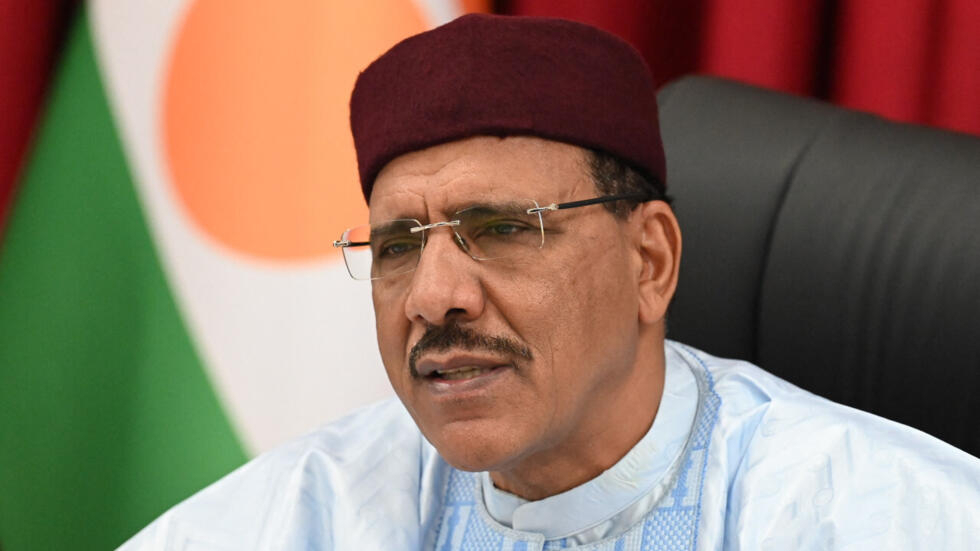
The Economic Community of West African States (ECOWAS) court, based in Nigeria’s capital, Abuja, has ordered the immediate and unconditional release of the Republic of Niger’s ousted president, Mohamed Bazoum.
The court, in a decision on Friday, further ruled that Bazoum be reinstated to his rightful position.
Bazoum, who has been in detention since the July 26 coup that led to his ousting, is set to regain his freedom following the court’s directive.
The ruling emphasizes the need for his release and the restoration of his presidency.
The political turmoil in Niger has led to the country’s suspension from ECOWAS, triggered by the actions of the presidential guard that overthrew Bazoum and detained him along with his family.
“It is Mohamed Bazoum who represents the state of Niger; he remains president of the republic,” the court ruling said.
“There are constitutional rights that have been violated.”
Bazoum, along with his wife and son, has been confined to his presidential residence following his overthrow.
The response from Niger’s military rulers to the court ruling has not been immediate.
Historically, other member states have disregarded decisions from the ECOWAS court.
In September, the ousted president appealed to the ECOWAS Court of Justice, seeking his release and the reinstatement of constitutional order in the country.
“The decisions of the court are not subject to any appeal,” Bazoum’s collective of lawyers said in a statement sent to AFP.
According to Seydou Diagne, one of Bazoum’s lawyers, the court “for the first time convicted military authorities who, with their coup d’état, violated the principles of the constitution of ECOWAS.”
“It is the responsibility of ECOWAS and its member states to ensure that this court decision is effectively applied,” the lawyers’ statement said.
On Thursday, ECOWAS declared the suspension of Niger from all its “decision-making bodies” until constitutional order is reinstated.
ECOWAS, which has imposed heavy economic and financial sanctions against Niger and cut off trade after the coup, has resumed dialogue with the military regime.
READ ALSO: JAPA: Confused FG Begs Health Workers To Remain in Nigeria
On Thursday, Togolese Foreign Minister Robert Dussey, who was on a mediation mission in Niamey, said details on the transition back to civilian rule in Niger had been agreed upon with its prime minister, Ali Mahaman Lamine Zeine, a civilian appointed by the military regime.
Dussey told Niger national television Tele Sahel that he had “worked and agreed on the content and timing of the transition” with the premier and the regime’s Foreign Minister, Bakary Yaou Sangare.
“We will present this content… agreed together to the mediating heads of state and the ECOWAS Commission,” he said, without giving any details on how long the transition would be or how it would happen.
According to Tele Sahel, Dussey will return to Niamey in January with his counterpart from Sierra Leone, Timothy Kabba.
On Sunday, an ECOWAS summit in Abuja opened the way to a reduction of its sanctions against Niger, but on the condition that there is a “short transition” back to civilian rule. ECOWAS leaders decided that a heads-of-state committee made up of Benin, Togo, and Sierra Leone would negotiate with the Nigerien military regime on steps needed before a possible relaxation of sanctions.
In August, the head of the military regime, General Abdourahamane Tiani, declared that the duration of the transition would not exceed three years and would be determined by “an inclusive national dialogue.”
ECOWAS, which had previously imposed substantial economic and financial sanctions on Niger and severed trade ties following the coup, has reinitiated discussions with the military regime.
Togolese Foreign Minister Robert Dussey, engaged in a mediation mission in Niamey, revealed on Thursday that agreements regarding the return to civilian rule in Niger had been reached with the civilian prime minister, Ali Mahaman Lamine Zeine, appointed by the military regime.
Dussey informed Niger national television Tele Sahel that he and the premier, along with the regime’s Foreign Minister Bakary Yaou Sangare, had worked out the details and timing of the transition. He stated that the agreed-upon content would be presented to the mediating heads of state and the ECOWAS Commission, although he did not provide specifics on the duration or the process of the transition.
According to Tele Sahel, Dussey plans to return to Niamey in January, accompanied by his counterpart from Sierra Leone, Timothy Kabba.
Following an ECOWAS summit in Abuja on Sunday, a pathway to easing sanctions against Niger was opened, contingent on a “short transition” back to civilian rule. ECOWAS leaders established a committee comprising representatives from Benin, Togo, and Sierra Leone to negotiate with the Nigerien military regime on the necessary steps before considering a relaxation of sanctions.
In August, General Abdourahamane Tiani, the head of the military regime, had declared that the transition’s duration would not exceed three years and would be determined through an “inclusive national dialogue.”
(AFP)







Leave a Reply